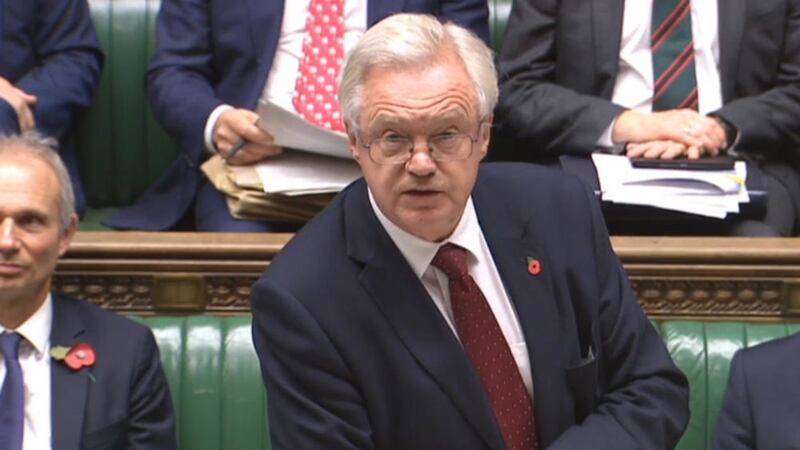Britain's Brexit Secretary David Davis has been warned that negotiations for leaving the European Union will be ""tough" and "intense" as MEPs stressed that the UK would not be able to remain in the single market without accepting free movement of people.
The Cabinet minister held talks with the European Parliament's Brexit chief Guy Verhofstadt and other senior MEPs during his visit, but there was frustration in Strasbourg over the lack of clear information coming from the British government.
German MEP Manfred Weber, chairman of the centre-right European People's Party, suggested that theBritish government wanted to remain in the single market, but "there is no idea what Brexit really means".
Former Belgian prime minister Mr Verhofstadt said the process of negotiating the UK's exit would have to be concluded within around 14 or 15 months after triggering Article 50 - and beginning the formal Brexit procedure in order for MEPs to have time to give their consent to any deal.
He said it would be a "tough period, very intense".
Looking forward to a hell of a conversation with David Davis tomorrow :) https://t.co/R5r67Shm8P
— Guy Verhofstadt (@GuyVerhofstadt) November 21, 2016
After his talks with Mr Davis, the Belgian MEP, who leads the liberal group in the European Parliament, said Brexit could not mean enjoying the benefits of EU membership but imposing curbs on migration.
"It is impossible to find solutions where we destroy the so-called four freedoms. These four freedoms are key, they are a basic element of the European Union - the freedom of movement of goods, of services, of capital and of people."
He said MEPs "will certainly never accept" any deal where those four freedoms were put at risk.
Mr Davis confirmed the British government expected to trigger Article 50 before the end of March and explained "how the British Parliament will be involved with the bill", Mr Verhofstadt said.
MPs are only likely to be given a say on triggering Article 50 if the Government loses its Supreme Court challenge on whether the Prime Minister alone has the authority to fire the starting gun on the Brexit process.
Mr Weber criticised the way Britain was handling the Brexit process: "What we really expect are clear proposals. Today, in my talk with David Davis, unfortunately I have not heard anything new, I have not heard much as to how the British government wants to tackle Brexit and what Brexit really means. I have not received any new information, quite the opposite is true.
"Today I have been told that the British government, as far as the economy is concerned, it wants to stay in the single market - but the British Government would also like to continue and have very close co-operation in legal issues."
But he added: "Brexit means Brexit, so we are going to have to cut back on our relationships. It is not a cherry picking situation at all."
Asked if Mr Davis had directly told him Britain wants to remain in the single market, Mr Weber said: "I think the economic dimension is clear for Great Britain, they have a strong interest to keep a kind of relationship to the single market, to keep strong ties to the single market.
"About the form, how they want to do this, I think that is still open because what Guy said, and what I also experienced in the meeting with David Davis, was that there is a structure at the moment, that they are discussing amongst them, but there is no idea what Brexit really means."
Responding to Mr Weber's suggestion that Mr Davis had indicated the UK wants to stay in the single market, a Downing Street spokesman said: "The government's position hasn't changed on this.
"We are very clear that what we want is a trading relationship that allows UK companies to trade both with and within the single market and lets European businesses do the same."
Speaking at a Westminster media briefing, the Number 10 spokesman declined to respond to repeated questions over whether the relationship the Government is seeking would require single market membership.
The move came as Theresa May held talks with Belgian prime minister Charles Michel in Downing Street which were expected to be dominated by Brexit.








